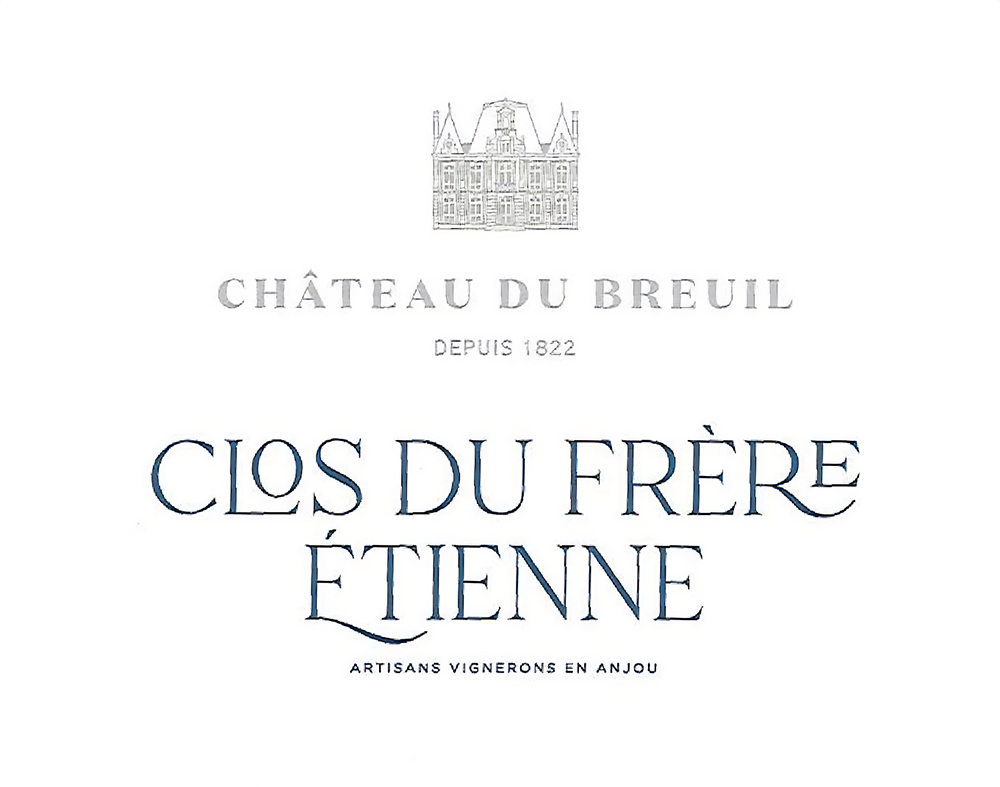Châteaux du Breuil et de la Roche
Anjou Blanc ‘Clos du Frère Étienne’ 2019
Châteaux du Breuil et de la Roche Anjou Blanc ‘Clos du Frère Étienne’ 2019
In France’s majestic Loire Valley lies Châteaux du Breuil et de la Roche, situated on the right bank of the Layon river near the village of Beaulieu-sur-Layon, 20 minutes south of Angers. Built in 1822, Le Breuil’s vineyards are located on prime L’Anjou Noir vineyards: south-facing slopes of the Coteaux du Layon, resting on a bed of schist just above a seam of spilite that runs between the towns of Beaulieu-sur-Layon and Rochefort-sur-Loire. The winery also owns a prime vineyard across the Loire river, in the heart of Savennières.
The foundation of the winery lies in their superlative regenerative, certified-organic farming methods. The team has been working without the use of herbicides, pesticides or chemical fertilizers since 2007, receiving their organic certification from Ecocert in 2015. The Breuil team also utilizes native hedges, trees, and low stone walls as natural windbreaks and as pathways for wildlife to enter the vineyards from the forest. The resulting soil health is remarkable—turning over the soil in the Breuil vineyard reveals a rich network of mycelia (fungal organisms), earthworms, insects, and native ground cover, such as wild onion, garlic, and clover, among many others.
Anjou Blanc Clos du Frère Étienne is a five-hectare single vineyard, historically important to the winery in Beaulieu-sur-Layon that was replanted to old, low-yielding chenin blanc clones in 1994. Soil studies have demonstrated only two to three feet of earth cover a solid schist bedrock below the vines. Their resulting Clos du Frère Étienne Anjou Blanc produces two barrels of wine that is even more richly textured than Savennières, yet with a distinct mineral profile. An impressive wine with incredible clarity, intrigue, and emotion that you can drink now, or allow to improve in bottle for 10 years or more.
Vinification – The philosophy in the cellar is to protect and retain the purity of the fruit with as minimal intervention as possible. They use only the coeur du cuvée, the heart of the first pressing, for their estate wines. At harvest, each vineyard is monitored carefully for the desired balance, as they are always looking for the utmost elegance. Whole bunches are sorted first in the vineyard into small crates and then brought to the winery, where they are carefully washed to avoid the introduction of Brettanomyces (a necessary step to preserve fruit and vineyard character) and then sorted again by hand. Only the healthiest, best bunches make it into the fermentation tank. Bunches are handpicked and sorted in the vineyard in small crates. Stems are retained. After crushing, alcoholic and malolactic fermentation take place in two 400 liter French barrels. The wine is aged in the same barrels for 12 months, followed by 12 months in stainless steel, and one year in bottle. Only the minimum amount of sulfur dioxide possible is used during élevage and at bottling.


